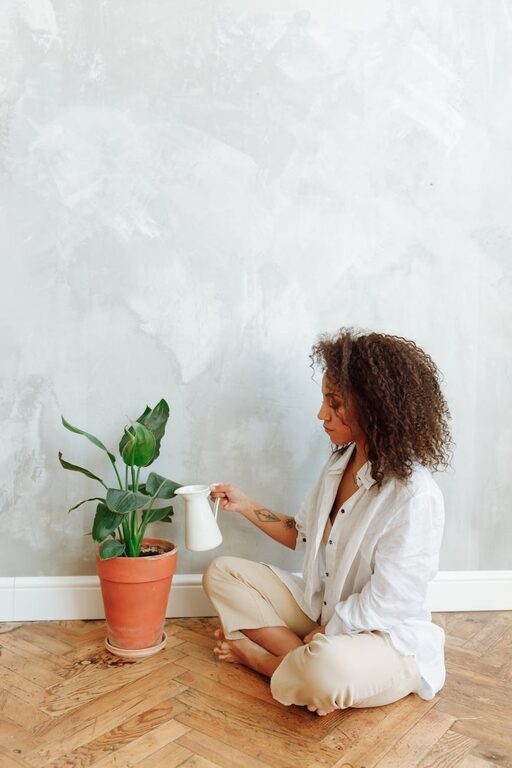Taking time for yourself is essential for maintaining good mental and physical health. However, self-care doesn’t have to mean expensive spa days or costly products. You can cultivate a relaxing and restorative routine right at home with just a few simple, budget-friendly ideas. Here are some easy self-care activities that anyone can try to improve well-being without spending much money.
Why Self-Care Matters
Self-care is all about taking deliberate time to care for your body, mind, and spirit. It helps reduce stress, improve mood, and increase energy levels. Making small investments in your daily routine can result in lasting positive effects. Incorporating self-care practices into your lifestyle can help you feel more balanced and better equipped to handle life’s challenges.
Setting up a Relaxing Atmosphere
Creating a peaceful, inviting space for self-care sets the tone for relaxation. You don’t need special equipment or fancy decor — just a clean, uncluttered area with good lighting.
– Declutter your space: Tidying up helps clear your mind.
– Use soft lighting: Lamps or candles create a calm ambiance.
– Add natural elements: Houseplants, flowers, or natural scents like essential oils can enhance tranquility.
– Play calming music: Gentle instrumental or nature sounds can foster relaxation.
Low-Cost At-Home Self-Care Ideas
1. Mindful Breathing and Meditation
Practicing mindfulness and deep breathing is a powerful way to reduce anxiety and center yourself. Start with just 5 to 10 minutes per day.
– Sit or lie down comfortably.
– Close your eyes and focus on your breath.
– Inhale slowly through your nose for four counts, hold briefly, then exhale gently through your mouth.
– If your mind wanders, gently bring attention back to your breathing.
There are many free meditation apps and guided videos online that make starting easier.
2. Take a Warm Bath or Foot Soak
A warm bath can soothe tired muscles and calm the nervous system. If you don’t have a bathtub, a foot soak can be just as relaxing.
– Use Epsom salts, baking soda, or a few drops of essential oils like lavender.
– Light candles or dim the lights.
– Play soft music and allow yourself to unwind for 15–30 minutes.
3. Journaling for Reflection
Writing your thoughts down can help process emotions and reduce stress.
– Start a daily or weekly journal.
– Write about what you’re grateful for, your goals, or simply describe your day.
– Use journaling prompts if you’re unsure what to write.
4. Gentle Movement and Stretching
Physical activity is key to feeling good, but it doesn’t have to be intense or expensive.
– Try gentle stretches or yoga routines available for free on video platforms.
– Take a mindful walk outside, focusing on sights, sounds, and sensations.
5. Cooking a Healthy, Comforting Meal
Cooking can be both creative and therapeutic.
– Pick simple recipes using affordable ingredients.
– Prepare meals that nourish your body and bring comfort.
– Involve family or friends to make it a social, enjoyable activity.
6. Digital Detox
Taking breaks from screens can help reduce stress and improve sleep.
– Set aside specific times each day to unplug.
– Use this time to read, meditate, or enjoy hobbies.
7. Creative Crafts and Hobbies
Engaging in creative projects promotes relaxation and a sense of accomplishment.
– Try drawing, coloring, knitting, or simple DIY crafts.
– Use supplies you already have or find low-cost materials at craft stores.
8. Stay Hydrated and Rest Well
Never underestimate the power of basic self-care:
– Drinking enough water supports overall health.
– Prioritize sleep hygiene by establishing a relaxing bedtime routine.
Tips for Making Self-Care a Habit
– Schedule it: Treat self-care like any important appointment.
– Start small: Begin with just a few minutes daily and build up.
– Be flexible: Adjust your routine based on how you feel.
– Limit perfectionism: Self-care isn’t about doing it perfectly; it’s about being consistent.
– Celebrate progress: Acknowledge your efforts to encourage ongoing commitment.
Final Thoughts
Self-care is essential for maintaining your health, happiness, and resilience. The great news is that it doesn’t have to be expensive or complicated. By incorporating some of these affordable ideas, you can create a personalized self-care routine that fits your lifestyle and nurtures your well-being. Remember, taking care of yourself is a worthwhile investment — no price tag needed.

